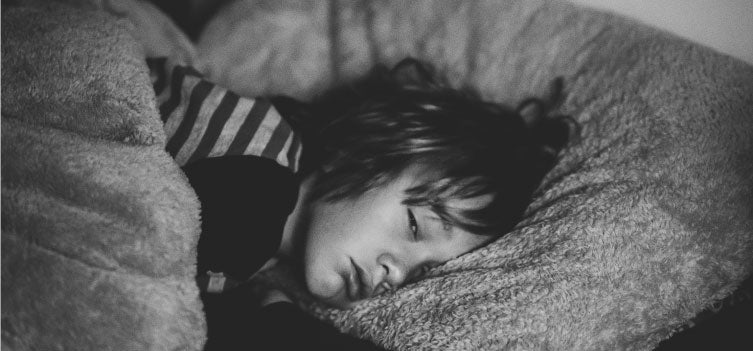If your child has never experienced night terrors, you may be forgiven for thinking it is simply another term for nightmare. In reality, the two are vastly different. More than a bad dream, nightmares are vivid and disturbing. Unlike a night terror, after a nightmare your child will wake and be able to share with detailed accuracy their traumatising experience.
While many youngsters suffer nightmares, night terrors generally affect less than 5% of children. The first indication of a night terror may be a piercing scream 2-3 hours after going to bed. Stuck between sleep and wakefulness, your child is unlikely to either recognise you or respond to any attempts to soothe or calm them. The child may appear sweaty and terrified, their eyes open and arms and legs thrashing violently. Generally lasting for only 5 -10 minutes, some children may even sleepwalk.
Although night terrors may be more common if your child is unwell, overtired or you have an existing family history, they are a completely normal aspect of healthy childhood development. There is usually no need to seek medical advice, unless you are concerned that the frequency or intensity of the terrors are impacting your child or your family.
As a parent, night terrors are distressing to witness. Rest assured, for the child themselves there is usually no recollection of the episode. If your child experiences night terrors, the best strategy is to remain calm, ensure a safe environment and let the incident run its course. Intervening or trying to touch your child (unless they are likely to hurt themselves) may worsen the situation.
Night terrors have no lingering detrimental effects and children will generally grow out of them. Minimise the likelihood of your child experiencing night terrors by maintaining a good bedtime routine to ensure they achieve adequate sleep each night.



